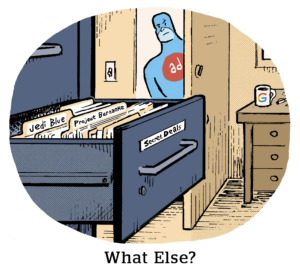Roku saw viewership decline in Q2 as pandemic restrictions eased.
Streaming hours dropped a billion hours from Q1 to 17.4 billion hours in Q2, and the company’s stock was down 9% on Thursday. While Roku’s streaming hours declined sequentially, they still increased 19% from the previous year, during the early days of lockdown.
It added 1.5 million active accounts (MAUs) to reach 55.1 million, compared to adding 2.4 million MAUs last quarter.
On the revenue side, however, Roku’s platform business (which includes advertising and distribution fees) exceeded half a billion dollars for the first time ever. Platform revenue grew 117% YoY to $532 million. Overall, Q2 revenue grew 81% to $645 million.
Roku’s average revenue per user increased 46% to $36.46, and ad impressions more than doubled year-over-year.
Despite the decline in viewership and watchtime, Roku said it is bucking the trend of a decline in overall TV viewing time, citing a 19% increase in global streaming hours year-over-year, even while hours on all streaming TV platforms dropped 2% and linear plummeted 19% due to “all the variability around pandemic,” CEO Anthony Wood told investors.
“I think big picture for me is that we’re still in the middle of this transition where viewers, advertisers and the industry are moving 100% to streaming – we’re just not there yet,” Wood said.
The slower growth could also reflect the impact of increased competition from Amazon, Samsung and LG, as well as Roku’s ongoing dispute with Google over distribution of YouTube Live, Brian Wieser, GroupM’s global president, business intelligence, told AdExchanger.
“[W]e can see how critical subscriber growth and a massive expansion of advertising revenue is to the company’s overall business,” he said.
Roku’s upfront arrival
Roku’s platform business scored record upfront commitments – including deals with all seven major holding companies – which more than doubled YoY.
“Advertisers [are] starting to follow their viewers to streaming – that’s one of the drivers,” Wood said. He also said the launch of direct-to-consumer streaming services benefited Roku. “We’re a great platform for merchandising, promoting and distributing those services. Both of those are contributing to our overall platform revenue growth.”
This was the first year that Roku locked in upfront deals at the same time as the networks, said Scott Rosenberg, Roku’s SVP and GM of its platform business, who described this year’s upfronts as “transformative.”
More than 42% of upfront deals were with first-time advertisers.
“Coming out of the pandemic, there’s increased urgency by marketers to follow audiences, especially amid steep ratings declines,” he said.
Roku’s OneView ad buying and management platform also clinched upfront wins – it added more than 100 new advertisers in June alone. Spending on the platform nearly tripled year-over-year.
“Brands are using our tools exactly as we intended it – they’re exploiting the fact that we’ve got that deep first-party relationship on the biggest screen in the home,” Rosenberg said. “They’re combining it together with our ability to help place ads on a multichannel basis – desktop and mobile – to deliver a bigger outcome.”
Roku’s branded content studio – which helps advertisers produce new creative ad formats – resonated with brands and also helped bring in ad dollars.
The ad-supported Roku Channel received an influx of original content from Quibi, the short-form streaming service Roku acquired earlier this year, such as “Die Hart” starring Kevin Hart and John Travolta, which Roku renewed for a second season. Streaming hours on the Roku Channel more than doubled year-over-year, and the platform saw a record number of unique accounts, though the company did not break out specific figures.
The Roku Channel is generating revenue and Roku plans to reinvest in more content, creating a “virtuous cycle of viewers seeking out free content, advertisers following viewers and us reinvesting the revenue back into better and better content,” Wood said.

















